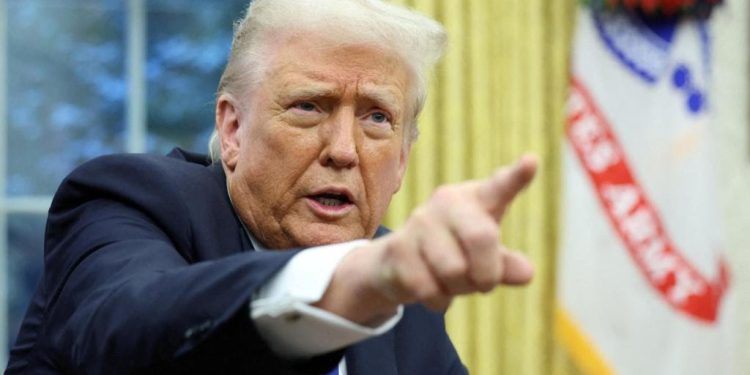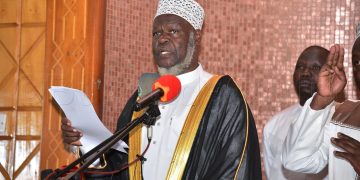In a move drawing sharp comparisons to his controversial 2017 travel ban, U.S. President Donald Trump has signed a broad executive order barring entry to the United States from 12 countries and imposing partial restrictions on seven others.
The announcement was made on Thursday, just days before the policy is scheduled to take effect on June 9.
The full travel ban applies to citizens of Afghanistan, Haiti, Iran, Somalia, Libya, Yemen, Sudan, Eritrea, Myanmar, Chad, Congo-Brazzaville, and Equatorial Guinea.
According to the order, individuals from these nations will be denied entry into the U.S. entirely, though exceptions exist for some groups including certain athletes, Afghan nationals who collaborated with U.S. forces, and dual citizens holding passports from unaffected countries.
Meanwhile, Burundi, Cuba, Laos, Sierra Leone, Togo, Turkmenistan, and Venezuela face newly introduced partial restrictions. Specifics on the nature of those limitations are expected to be released in the coming days.
“We don’t want them,” Trump stated at a press briefing, referencing a recent violent incident in Boulder, Colorado, where 12 individuals were injured during a pro-Israel demonstration.
Authorities have arrested Mohamed Sabry Soliman, an Egyptian national, in connection with the attack although Egypt does not appear on the new list of banned countries.
The White House defended the executive order as a necessary step toward “protecting Americans from dangerous foreign actors.” The policy will undergo periodic reviews to assess each listed country’s compliance with U.S. security and immigration standards.
Officials are now tasked with initiating diplomatic discussions with the affected countries to improve cooperation around security protocols and vetting processes.
This move marks Trump’s first major immigration policy since returning to office and fulfills a core campaign promise. It has, however, already triggered strong pushback from human rights advocates and legal analysts.
Immigration attorney Robyn Barnard of Human Rights First criticized the policy, labeling it “truly punitive.” In an interview with the BBC’s Newsday program, she stated, “There’s no logical thread connecting the countries on this list. This is less about national security and more about exclusion and chaos.”
Supporters of the measure argue it’s a vital tool for national protection. Republican Congressman Clay Higgins, who serves on the House Homeland Security Committee, defended the policy during an appearance on BBC Radio 4’s Today program.
“Some who came legally later committed terrorist acts,” Higgins said. “Travelling to the US is a privilege, not a right. Americans have had enough of immigrants coming to our country, violating our laws and committing violence among our people.”
Responding to critiques about inconsistencies — including Egypt’s omission — Higgins stressed the importance of maintaining robust vetting systems and making case-by-case decisions.
Alongside the immigration announcement, Trump also issued an unexpected order suspending foreign student entries to Harvard University for six months, citing vague national security concerns. Harvard denounced the action as “retaliatory,” affirming its support for its international student population. According to Reuters, university officials suspect political motivations behind the move, though the administration provided no direct evidence.
Escalating political tensions further, Trump has launched an official investigation into former President Joe Biden, alleging that Biden’s aides misled the public about his mental health during his time in office. Trump described it as “one of the most dangerous and concerning scandals in American history,” a claim Biden’s team dismissed as “ridiculous.”
With legal challenges anticipated, the American Civil Liberties Union (ACLU) has already pledged to oppose the new ban in court. The group previously contested the 2017 order and is preparing to act again.
“This ban targets Black and brown immigrants and violates basic principles of equality and justice,” the ACLU said in a statement.
Despite the backlash, Trump remains firm on the policy’s necessity. “We can’t have open migration from countries where we cannot safely and reliably vet people,” he declared.
As the June 9 deadline nears, diplomatic efforts are underway to address U.S. concerns. However, given the political instability and strained relations with many of the targeted countries, any swift resolution seems unlikely.
Still, Trump signaled there’s more to come. “This is just the beginning of restoring law and order to our borders,” he vowed.


















